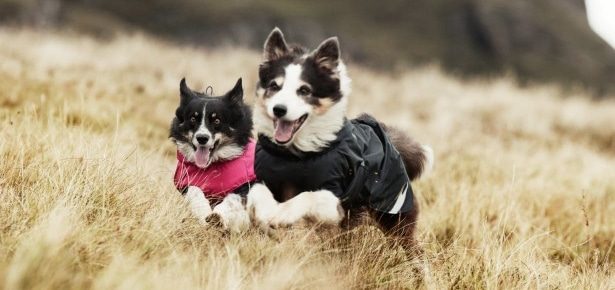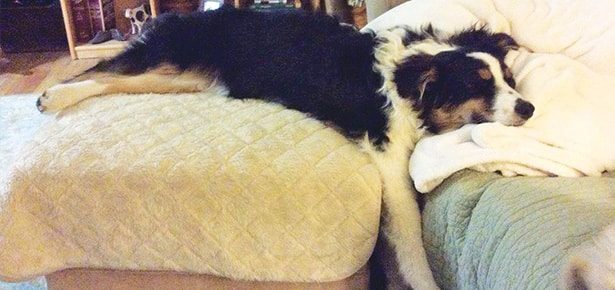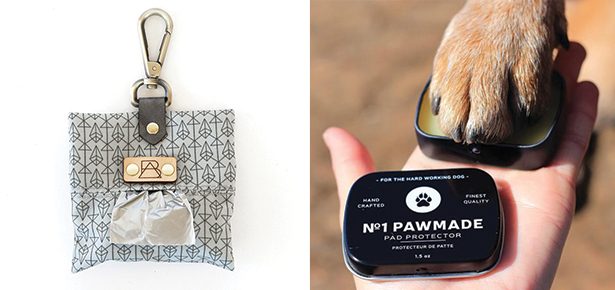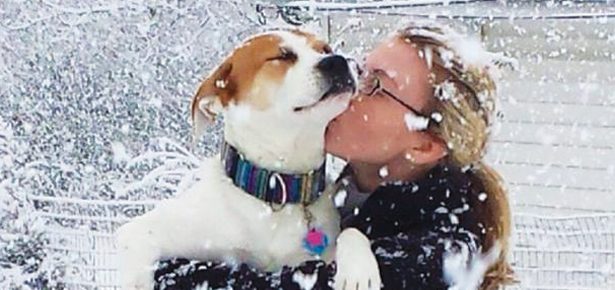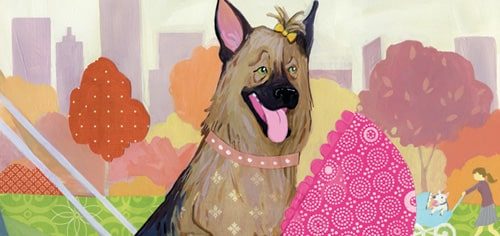
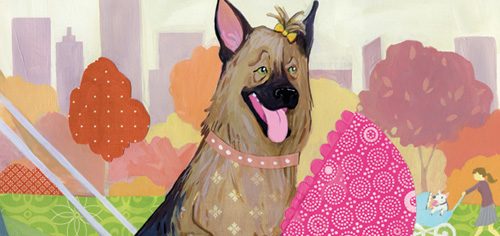
Furkids
Why treating pets like children can be such a hot-button issue
Google furkids and you will find hits on everything from dogsitters to tailored clothing: the population of pet guardians that relate to their bundles of fur much like offspring is steadily growing. Some pet parents see their dog as a child-substitute—a replacement for the unconditional love and nurturing that comes with a parent-child relationship. Others view caring for their dog as a bona fide parenting role, regardless of their choices surrounding reproduction, and seem to use the term furkids to symbolize their degree of love and commitment. Whether furkids are born of an empty nest, fertility issues, a deliberate choice not to have children, or the welcome inclusion of four-legged kids into a family with the two-legged variety, all parents of furkids share at least one experience: vocal attacks by critics who firmly believe dogs should not be treated like children.
At face value, the attacks can seem bizarre. Why would anyone be so opposed to a dog being treated as part of the family and showered with the love and attention you’d give a young child? What is it about booking doggie playdates or carrying Fido in a dogsling that causes some people to blow a fuse? Something must fuel the anger towards people who choose to treat their dogs like kids, but what?
I’ve probed this question in my work as a veterinarian and dog trainer, both with dog lovers and those living in their midst, and identified three key concerns.
1. Dogs Are Not Human
Furkids, by definition, blur the divide between humans and other animals in our society, muddying the comfortably clear-cut distinction
we’ve set between the roles and rights of each. Behind the statement, “dogs are dogs and people are people” is usually significant discomfort with the contradictions that the relationship between pet parent and furkid poses.
This objection to humanizing the role of the pet dog seems to come from people sitting anywhere along the wide spectrum of values relating to pets. For people who object to ANY provisions for dogs beyond a waterdish and daily meal, going as far as treating
pets like children is tantamount to lunacy. At the other end of the scale are those comfortable with dogs in the traditional role of well-treated pet, but oppose the likening of pet ownership to parenthood.
For most pet parents, the reference to their dogs as furkids doesn’t actually imply a confusion between what is involved in raising dogs versus kids, or the status of each in our society, but it does speak to a level of love, nurturing, companionship, and commitment that is traditionally reserved only for humans and not necessarily present in the average dog-owner relationship. This cross-species bond can pose some pretty inconvenient questions that critics aren’t shy to ask: if it is okay for a dog to be treated like a kid, then what does that say about our exploitation of animals
for food, clothing and medical research—that it is wrong? Considering this question—whether using animals in these ways might be morally wrong—is difficult and uncomfortable. It is easier
to say instead that treating a dog like a human is unacceptable.
2. Furbabies Are Being Used or Abused
I must admit that the first time I saw a dog in a stroller, I was a bit taken aback. I wondered if the little Yorkie with ribbons in her hair ever got to sniff the ground and check her p-mail. Admittedly, she looked quite content being carted around like a toddler, but I did wonder if her doggie desires were being met.
Furkids come in all shapes and sizes and fall within a wide range of lifestyles, but those that attract the greatest negative attention, by far, are the little ones dressed up and toted around. Interestingly, some of the most vehement critics of these furbabies are pet parents themselves, often of larger breeds, who absolutely despise the subjugation of “doggieness” implied by clothed and carried furbabes. They see the “toddlerizing” as inhumane and undignified, and even question whether some of these dogs are also being used as ego-padding accessories.
While the concern for doggie dignity is genuine, I’m not sure it rests on very solid ground. Dogs don’t demonstrate any evidence of a crisis in self-respect when clipped and bathed, invited to sleep in human beds, seatbelted in the car, or engaged in tricks and games of human design. It is hard to argue indignity
in being clothed and carried when dogs seem to take well to so many other modifications of their “natural” ways of living. In cases where they don’t appear to take well to our impositions, then it is simpler to address this as a welfare problem.
In domesticating dogs, we created breeds for a wide variety of functions, each with vastly different lifestyle needs. Some were bred to be content spending their day alone on a mountain guarding sheep, others were bred to thrive on the company of humans. Individual preferences
need to be taken into account before a quality of life judgment can be made. I had a flatmate in vet school whose Jack Russell, Seven, just LOVED being dressed up. This dog would squeal with joy when the tickle trunk came out and proudly paraded around in each outfit like a dog on the runway—a canine in high couture.
Being dressed up and carried or carted around seems to go over just fine with many dogs, but if it causes anxiety, discomfort, or health problems, concern for the furbabe’s physical
and psychological welfare is clearly legitimate.
Being attached to a human 24/7 can put the dog at risk of separation anxiety, and a lack of intellectual stimulation and physical exertion can lead to an impressive
array of neurotic behaviours.
Canine welfare is a valid concern, but it needs to be considered objectively: being treated as a furkid can, but does not necessarily,
compromise a dog’s well-being.
3. Furkids Are Spoiled Brats
Last but not least, we have the ubiquitous
fear of creating the alpha-pooch: the unfounded worry that letting a dog share the couch, enjoy home-cooked meals, and be considered an important member of the family will lead to an ill-mannered and unsafe dog. This concern is understandable
given the plethora of false information
about social hierarchies and dominance
aggression that bombards us, but is simply misguided.
Experts agree that dogs do not enter our homes trying to become king of the castle and most aggression problems are rooted in anxiety not dominance. Showering a dog with love and attention just as you would a child does not create bad manners
or an aggression problem any more than it does in kids. Dogs need consistent rules to feel secure and know what is expected of them, but it really doesn’t matter what the rules are, as long as you are the one who makes them!
The beef with pet parents seems to be fueled by genuine concerns for the welfare
of both dogs and people, some more well-founded than others. We don’t all need to agree on what role we want pets to play in our lives, but we do owe it to each other to consider both dog needs and human needs before we pass judgment or criticize.
It saddens me when a pet parent whispers in shame during an exam that their dog is like a child to them, when both they and their dog seem to be thriving on the rich bond they share. It is equally unfortunate when an adored animal companion dies and pet parents struggle with their loss, often mourning in secrecy to avoid being mocked by friends, family or coworkers.
Is it any more “wrong” to have created the lap dog who lives to be fussed over than to have selectively bred the livestock guardian who’d just as soon trade his owner in for a flock of sheep? Surely the lifestyle of a working breed relegated to the status of a jobless pet is more likely to cause canine distress than a toy companion
breed being toted around in a sling.
Whether dogs are running sled races, guarding sheep, or sitting pretty in a designer stroller, provided their social and physical needs are being met, is there anything
to mock or despise in a relationship between human and dog that is loving, peaceful, and rewarding?
Join the newsletter and never miss out on dog content again!
"*" indicates required fields
By clicking the arrow, you agree to our web Terms of Use and Privacy & Cookie Policy. Easy unsubscribe links are provided in every email.
